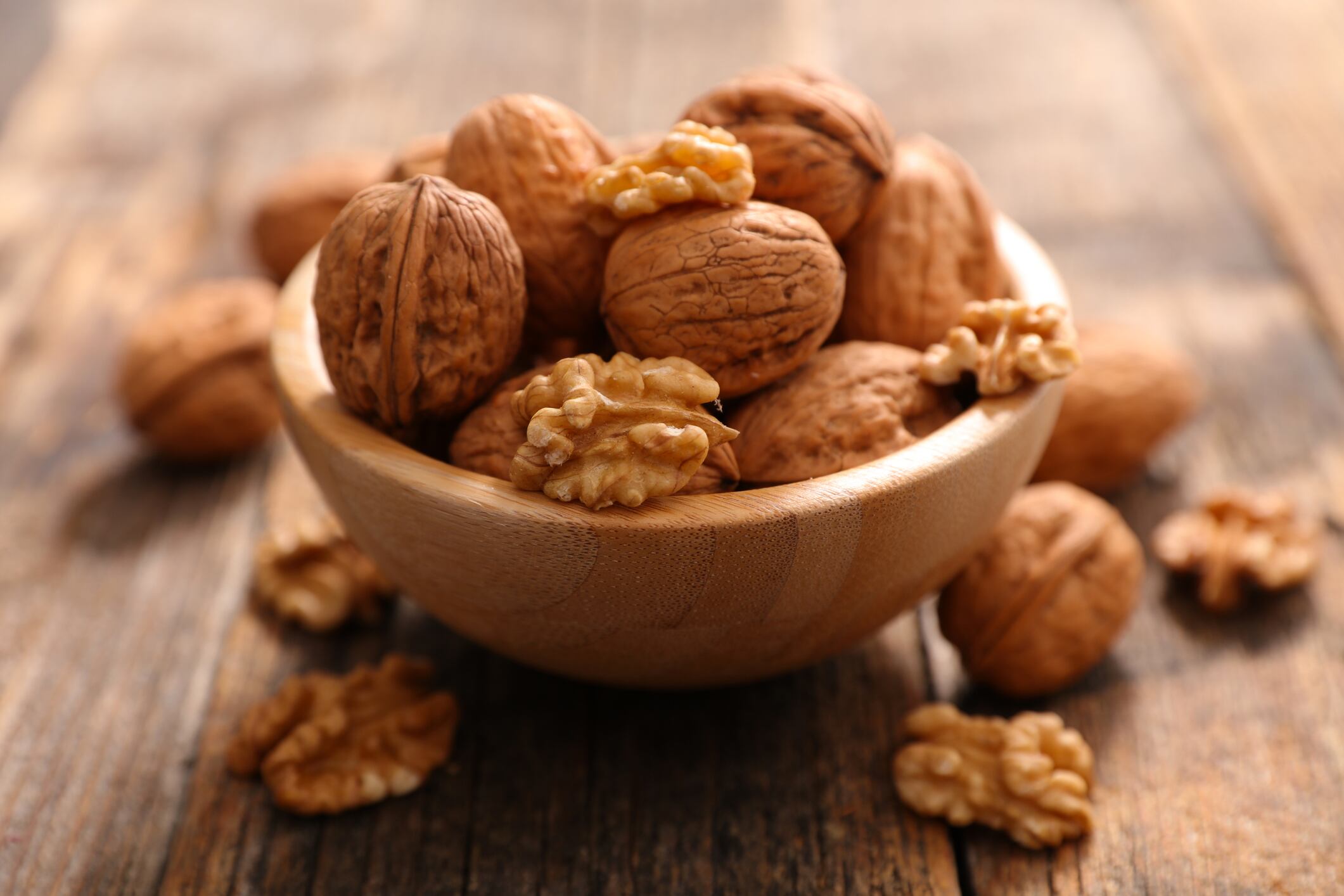Findings from the Walnuts and Healthy Aging (WAHA study) revealed the nut may play a role in lowering levels of low-density lipoprotein (LDL) cholesterol in adults aged 63-79.
"Prior studies have shown that nuts in general, and walnuts in particular, are associated with lower rates of heart disease and stroke,” says study co-author Emilio Ros, Director of the Lipid Clinic at the Endocrinology and Nutrition Service of the Hospital Clínic of Barcelona in Spain.
“One of the reasons is that they lower LDL-cholesterol levels, and now we have another reason: they improve the quality of LDL particles.
"LDL particles come in various sizes. Research has shown that small, dense LDL particles are more often associated with atherosclerosis, the plaque or fatty deposits that build up in the arteries.
“Our study goes beyond LDL cholesterol levels to get a complete picture of all of the lipoproteins and the impact of eating walnuts daily on their potential to improve cardiovascular risk."
The two-year, parallel group randomised controlled trial began enrolling 708 adults, who were considered healthy and resided in Barcelona, Spain, and Loma Linda, California.
The adults were randomly assigned into two groups. Those allocated to the ‘active intervention’ group added about a half cup of walnuts to their usual daily diet. Those in the ‘control’ group refrained from consuming walnuts.
Lowered CVD risk
After two years, the cholesterol levels of the subjects were tested, and the concentration and size of lipoproteins were analysed and identified as those potentially playing a role in elevating Cardiovascular Disease (CVD) risk.
After two years, the Spain and US research team found those in the walnut group had lower LDL cholesterol levels (by an average of 4.3 milligrams per decilitre (mg/dL) with total cholesterol lowered by an average of 8.5 mg/dL).
Daily walnut consumption reduced total LDL particle number by 4.3% and small LDL particles by 6.1%. The team suggested the reduction in number lowered the risk of cardiovascular disease.
Along with LDL levels, measurement of Intermediate Density Lipoprotein (IDL) cholesterol also decreased. IDL is considered a relevant lipid cardiovascular risk factor independent of LDL cholesterol.
Gender was also a notable factor as the research team found in men, LDL cholesterol fell by 7.9% and in women by 2.6% in the walnut group.
“While this is not a tremendous decrease in LDL cholesterol, it's important to note that at the start of the study all our participants were quite healthy, free of major non-communicable diseases,” points out Dr Ros.
“However, as expected in an elderly population, close to 50% of participants were being treated for both high blood pressure and hypercholesterolemia.
“Thanks in part to statin treatment in 32%, the average cholesterol levels of all the people in our study were normal.
"For individuals with high blood cholesterol levels, the LDL cholesterol reduction after a nut-enriched diet may be much greater."
Dr Ros also highlighted that consuming a handful of walnuts daily was a simple way to promote cardiovascular health adding the study found the walnuts’ healthy fats did not cause weight gain.
Novel mechanistic insight
In discussing the findings’ significance, the team suggested the reduction of lipoprotein-related CVD risk by long-term consumption of walnuts, provided ‘novel mechanistic insight for their potential cardiovascular benefit beyond effects on the standard lipid panel.’
“Our data reinforce the notion that regular walnut consumption may be a useful part of a multicomponent dietary intervention or dietary pattern to lower atherogenic lipids and improve CVD risk,” they theorised.
Frequent consumption of nuts, an important component of plant-based diets, has been linked with 15% lower total CVD and 23% lower CVD mortality rates.
Small, short-term randomised controlled trials indicated that diets supplemented with nuts have a consistent cholesterol-lowering effect.
However, no trials of nut-enriched diets for lipid changes focused on elderly individuals, recruited participants from diverse geographical locations, or lasted two years in duration.
Source: Circulation
Published online: DOI: 10.1161/CIRCULATIONAHA.121.054051
“Effects of Walnut Consumption for 2 Years on Lipoprotein Subclasses Among Healthy Elders.”
Authors: Sujatha Rajaram et al.


